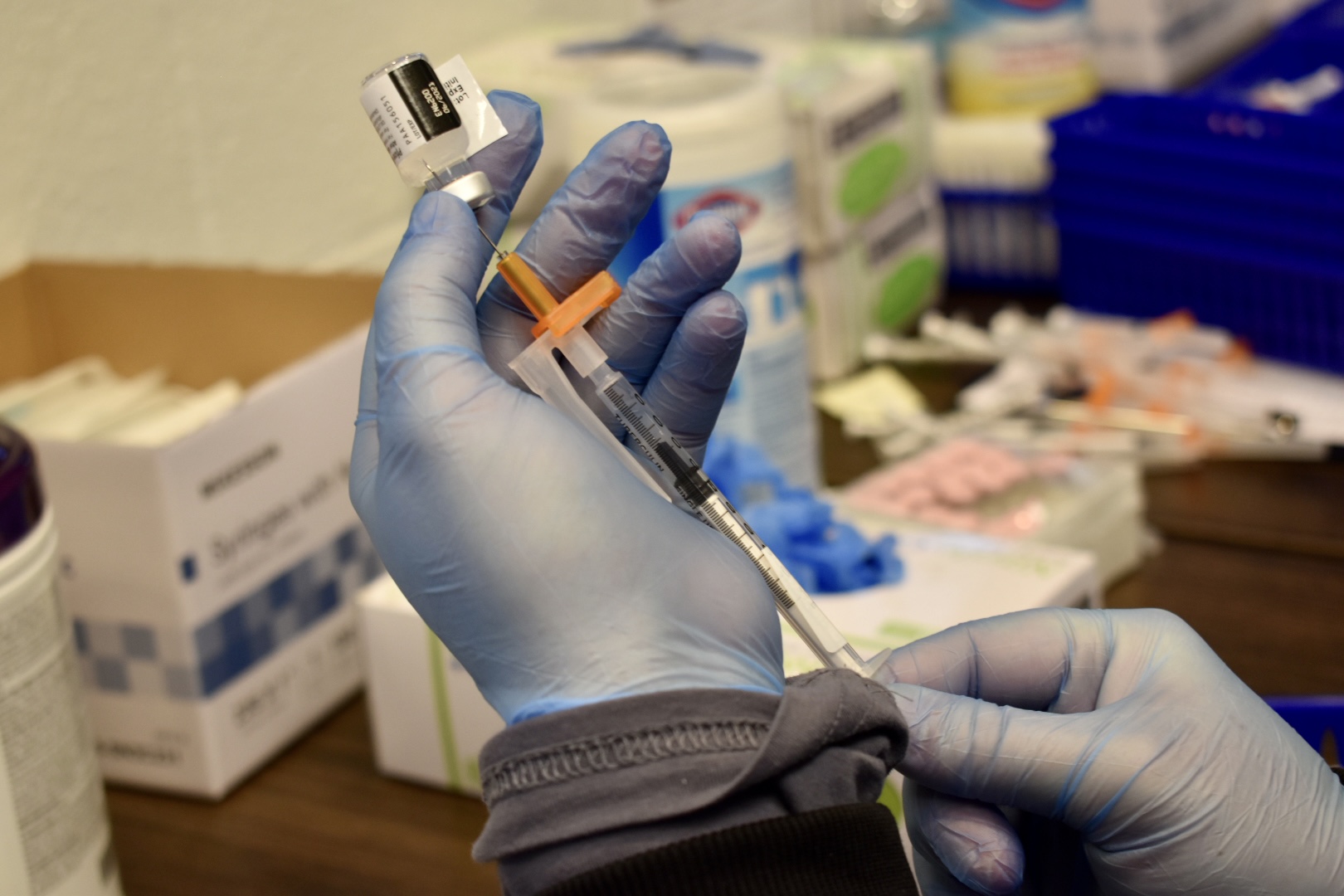Students required to receive second booster shot before spring semester
Per a Thursday afternoon email, all students, except those with approved exemptions, must receive an updated bivalent COVID-19 booster by the start of the spring semester

Regina Sung, Contributing Photographer
All undergraduate, graduate and professional school students, except those with approved medical or religious exemptions, will be required to have received a bivalent COVID-19 vaccine booster by the start of the spring semester.
The requirement is based on recent recommendations by the Centers for Disease Control and Prevention. University COVID-19 Coordinator Stephanie Spangler announced the new policy for students in an email to the Yale community on Thursday afternoon. Spangler also wrote that faculty and staff are “strongly encouraged” to receive a bivalent COVID-19 vaccine booster as soon as they are eligible.
“The updated, bivalent boosters provide broader protection from COVID-19, which may be particularly desirable during the holiday season, when indoor gatherings and travel may increase risk of COVID-19 transmission,” Spangler wrote. “Therefore, getting an updated, bivalent booster as soon as possible is highly recommended.”
Any student who cannot obtain the booster on time will be able to schedule a booster appointment on campus after their return to campus in the spring.
The updated boosters, known as “bivalent boosters,” contain mRNA components that protect against both the original strains of the COVID-19 virus as well as the newer, more contagious strains — BA.4 and BA.5 — that have become dominant in the United States.
“I think the new requirement makes sense,” Milan Singh ’26 told the News. “If we’re going to mandate vaccines, we might as well mandate boosters so that we can return to normal.”
Students, faculty, staff and Yale Health members can receive a Pfizer booster appointment through the Yale COVID-19 Vaccine Program, but Moderna and Pfizer boosters are also available at local clinics and pharmacies. However, the Yale COVID-19 Vaccine Program will also be offering pop-up COVID-19 booster clinics with the Pfizer bivalent booster on Nov. 3 and 10 from 11 a.m. to 3 p.m. on Cross Campus, with no appointment needed.
Richard Martinello, professor of infectious diseases and medical director for infection prevention at Yale New Haven Hospital, told the News the updated bivalent booster is immunogenic, meaning it can provide a “good immune response” that will optimize protection against subvariants.
Martinello said there is currently research underway to understand how each of the subvariants acts, but he said it is a “reasonable expectation” that the best chance to protect against the BA.5 subvariant and its derivatives is to receive the updated booster.
He advised that students wait two months after testing positive for COVID-19 before receiving the updated booster.
Current University policy already requires all students, faculty, staff and postdoctoral and postgraduate trainees, other than those with approved medical or religious exemptions, to receive the primary COVID-19 vaccine series and get a booster shot within 14 days of eligibility. Individuals can receive the Pfizer or Moderna bivalent booster no matter what primary vaccine series or booster they received in the past.
“My recommendation is that, since we are seeing a lot of COVID right now, the best thing to do is to just get whatever [bivalent booster] you have most ready access to when it is most convenient for you,” Martinello told the News.
Martinello said the amount of COVID-19 has been “impressively low” at Yale this semester, but he said he is concerned many are testing with home antigen kits and he has heard “some anecdotes” of some not reporting positive cases.
He also emphasized the importance of masking as a way to protect yourself and others and said students should still be “considering masking.”
Students can acquire bivalent booster shots through Yale Health or at local pharmacies.







